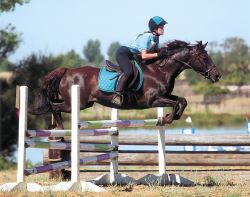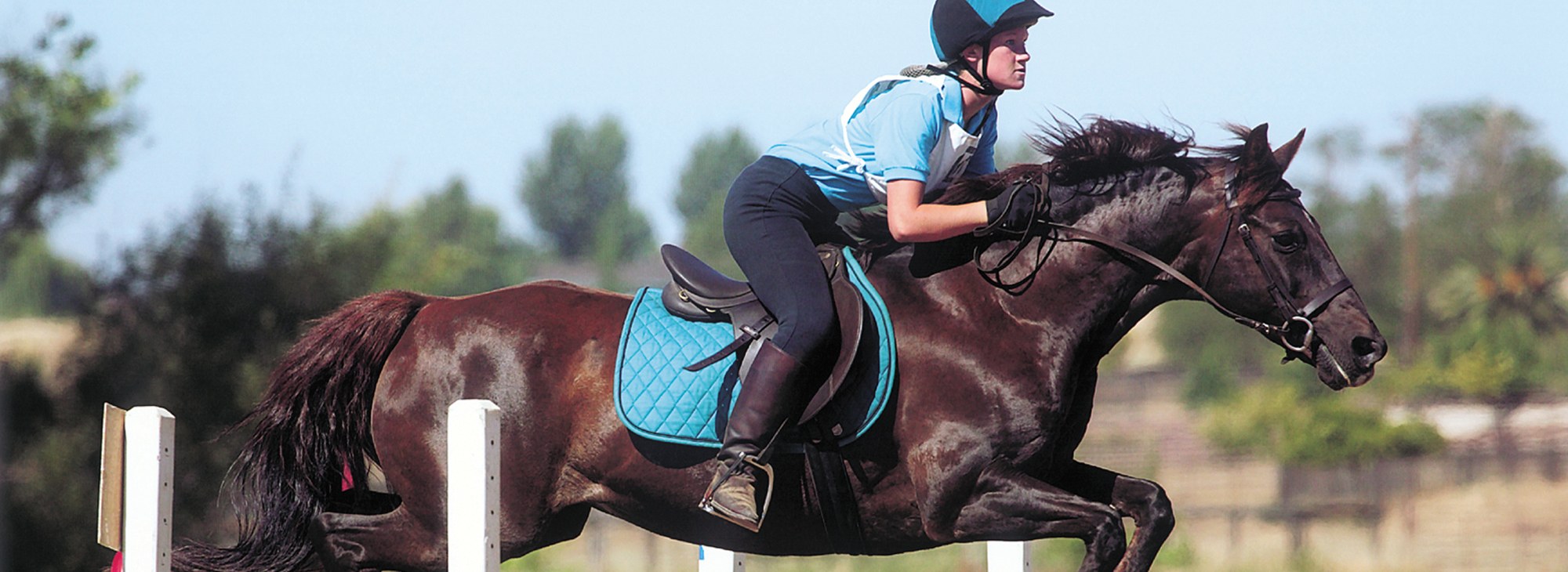Eventing
Eventing (also known as three-day eventing or horse trials) requires a horse and rider combination to compete across three phases; dressage, cross country, and show jumping. One of three Olympic equestrian events, this discipline has its roots in cavalry tests that required mastery of several types of riding. While three-day events are still held around the world, the more common competition today is a one-day event. There are seven levels of competition, starting with Beginner Novice and ending with Advanced. Each level asks for a further level of fitness, jumping scope, and technical skill.
The dressage phase is held first, with judging based on balance, rhythm, suppleness, and cooperation between the horse and rider. The challenge is to demonstrate that a supremely fit horse, capable of completing the cross-country phase on time, also has the training to perform in a graceful, relaxed, and precise manner. Dressage is held first because it is the basis for the scoring, so that penalty points that occur in the jumping phases are added to the dressage score.
Show jumping is held in a ring or arena and tests the technical skills of the horse and rider to navigate the numbered fences without dislodging any rails within the time allowed. Depending on the event level, 12 to 20 fences comprise the course. In one-day events, show jumping is held after dressage; in upper level competitions, the show jumping phase would be held last to demonstrate the horse and rider’s fitness after the cross country phase.
Cross country is the third phase at one-day events and the second phase in three-day events. It is the phase most eventers enjoy the most! It requires both horse and rider to be in excellent physical shape and to be brave and trusting of each other. This phase usually consists of 12–20 fences in lower level competitions and up to 40 fences at the higher levels, placed on a long outdoor course. These fences consist of very solidly built natural objects (logs, stone walls, etc.) as well as various obstacles such as water, ditches, drops and banks. Every cross country course is timed for the expected speed to complete the course.
Morgan horses are very well suited for eventing! They are naturally athletic, brave, and forward, and cross country in particular requires all of these traits. There are many Morgans competing in the sport today who are excellent ambassadors for the breed.
United States Eventing Association (USEA)
Visit the Morgan Sport Resource page for articles on the Morgan Horse in Eventing
Click HERE to see Morgans Eventing!

